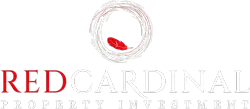Strategies for Minimising Taxes on Property Investments
In the world of property investment, the value of savvy financial strategies cannot be overstated. While property ownership can yield substantial gains, the spectre of taxes often looms large. Understanding and implementing effective tactics for minimising taxes on property investments is essential to maximising your profits and securing your financial future.
Why Tax Optimisation Matters
Tax optimisation is not just a buzzword; it’s a critical factor that can significantly impact your property investment journey. By strategically managing your tax liabilities, you can preserve more of your hard-earned money and reinvest it into further ventures. When embarking on property investment, your goal is not just to acquire real estate, but also to navigate the complex tax landscape with finesse.
Choosing the Right Ownership Structure
The foundation of effective tax management begins with selecting the optimal ownership structure. Different structures, such as individual ownership, limited liability companies (LLCs), or partnerships, come with distinct tax implications. Each structure influences your tax liability and the ease of property management. Therefore, take time to evaluate the structure that aligns with your goals while offering the best tax advantages.
Depreciation and Cost Segregation
Property depreciation is a friend, not a foe, when it comes to taxes. The wear and tear of properties over time translates into tax deductions that can significantly reduce your taxable income. Moreover, employing cost segregation studies can accelerate these deductions by identifying components of the property subject to faster depreciation. This strategy demands attention to detail but rewards you with substantial savings.
Rental Property Tax Deductions
When it comes to managing rental properties, tax deductions become your allies. Mortgage interest, property taxes, and operational expenses are all deductible items that can trim your taxable income. Keeping meticulous records of these expenses is paramount for ensuring compliance and maximising your deductions.
Short-Term vs. Long-Term Capital Gains
Timing is everything in the realm of capital gains tax. The duration you hold a property before selling it dictates whether it’s subject to short-term or long-term capital gains tax rates. Longer holding periods come with more favourable tax rates, providing a strong incentive for strategic patience.
Maximising the Home Office Deduction
If you manage your properties from a home office, don’t overlook the home office deduction. This deduction allows you to offset a portion of your home-related expenses against your property income. It’s essential to understand the eligibility criteria and the expenses you can claim while adhering to IRS guidelines.
Using a Self-Directed IRA
Thinking outside the box, a self-directed Individual Retirement Account (IRA) can fund property investments. This approach offers tax-deferred or even tax-free growth, depending on the type of IRA used. Nevertheless, it’s crucial to tread carefully within IRS rules to avoid unintended tax consequences.
Estate Planning and Step-Up in Basis
Looking ahead, estate planning plays a vital role in minimising tax burdens for your heirs. The step-up in basis provision allows inherited properties to be valued at their current market price, potentially reducing capital gains taxes for your beneficiaries. Navigating estate planning intricacies ensures a smooth transition of property without undue tax liabilities.
Staying Abreast of Tax Law Changes
Tax laws are not set in stone; they evolve. Furthermore, staying informed about these changes can make or break your tax optimisation efforts. Engage with tax professionals, attend seminars, and monitor legislative updates to fine-tune your strategies in line with the latest regulations.
Choosing the Right Ownership Structure for Property Investment: Navigating Tax Benefits
In the intricate landscape of property investment, the significance of selecting the appropriate ownership structure cannot be overstated. Your choice can wield a substantial influence not only on your tax liabilities but also on the overall management of your investment. This article delves into the advantages of different ownership structures and sheds light on their distinct implications for taxation and management.
Minimising Taxes on Property Investments: Advantages of Different Ownership Structures
When embarking on your property investment journey, the first decision you face is determining the most suitable ownership structure. Each structure—individual, limited liability company (LLC), partnership—holds its own set of merits, shaping the way you engage with your investment.
Individual Ownership: Opting for individual ownership provides you with direct control over the property. You make decisions independently and bear the sole responsibility. This structure is simple to establish and maintain.
Limited Liability Company (LLC): Creating an LLC combines personal liability protection with operational flexibility. Your liability is limited to the investment itself. Moreover, an LLC can elect its taxation method, offering potential benefits.
Partnership: Pooling resources through a partnership shares the financial load and decision-making. General partnerships offer equal say, while limited partnerships differentiate between active and passive partners.
Minimising Taxes on Property Investments: Impact on Tax Liability and Management
The ownership structure you choose reverberates through your tax obligations and property management approach. Subsequently, transitioning from one structure to another can trigger tax consequences, underscoring the importance of a prudent choice from the outset.
Individual Ownership’s Tax Implications: Direct ownership may lead to simplified taxation, but it exposes you to personal liability. You report property income and expenses on your personal tax return.
LLC’s Tax Implications: An LLC’s tax flexibility lets you decide between being taxed as a sole proprietorship, partnership, S corporation, or C corporation. This adaptability allows you to optimise tax outcomes based on your financial strategy.
Partnership’s Tax Implications: Partnerships file informational tax returns, and income flows through to individual partners. This structure requires adherence to partnership agreement terms, impacting decision-making.
Increasing Your Profits: Depreciation and Cost Segregation in Property Investment
Amid the intricacies of property investment, the strategies for optimising your financial gains extend beyond rental income and property appreciation. One powerful approach lies in understanding and leveraging property depreciation, alongside the concept of cost segregation studies. This part delves into how these tools can be wielded to your advantage, reducing taxable income and amplifying your profits.
Minimising Taxes on Property Investments: Leveraging Property Depreciation
Property depreciation emerges as a hidden gem in the world of taxes and investment. The gradual wear and tear of your property over time can be utilised as a legitimate tax deduction. This depreciation expense can be offset against your rental income, effectively lowering your taxable income. This avenue for tax reduction enables you to keep more of your earnings while maintaining your property’s value.
Introducing Cost Segregation Studies
Delving deeper into the realm of tax optimisation, cost segregation studies offer an advanced method to expedite depreciation benefits. These studies involve a thorough analysis of your property’s components, categorising them into different asset classes with varying depreciation schedules. By accelerating the depreciation of certain components, such as fixtures or equipment, you can front-load deductions and experience substantial tax savings in the earlier years of ownership.
How It Works: For instance, if you own a residential property, normally you’d depreciate the entire structure over 27.5 years. However, cost segregation might reveal that certain elements like lighting fixtures or cabinetry have shorter useful lives. Through cost segregation, you could depreciate these components over just 5 or 7 years, leading to significant tax deductions in the short term.
Minimising Taxes on Property Investments: Realizing the Benefits
Leveraging property depreciation and cost segregation studies demands meticulous attention to detail, but the benefits are far-reaching. Not only do you enhance your cash flow by reducing taxable income, but you also free up funds that can be reinvested into further properties or improvements. This strategic approach amplifies your potential for long-term financial success in the competitive realm of property investment.
Boosting Your Returns: Unveiling Rental Property Tax Deductions
In the realm of property investment, understanding the nuances of taxation can unlock a treasure trove of benefits. Rental property tax deductions stand as one of the most potent tools for maximising your returns. This article elucidates the key deductions available to property investors and underscores the significance of meticulous record-keeping and adherence to tax regulations.
Minimising Taxes on Property Investments: Unveiling Key Deductions for Rental Property Investors
As a rental property investor, you hold the key to a range of deductions that can chip away at your taxable income, thereby bolstering your profits. Here’s a breakdown of essential deductions that deserve your attention:
Mortgage Interest Deduction: The interest you pay on your mortgage is a prime deduction. It significantly reduces your taxable income, sparing you a considerable portion of tax payments.
Property Taxes Deduction: Property taxes, a necessary expense, can work in your favour. Deducting them lowers your tax liability, keeping more of your revenue intact.
Operating Expenses Deduction: Day-to-day expenses related to maintaining and managing your property, such as repairs, maintenance, and utilities, are deductible items that cushion your taxable income.
The Crucial Role of Record-Keeping and Compliance
Harnessing these deductions hinges on more than just their existence; it relies on your ability to prove their legitimacy through rigorous record-keeping. Properly documenting every expense and transaction not only ensures compliance with tax regulations but also fortifies your position in case of audits.
Why It Matters: In the event of an audit, comprehensive records become your defence. They substantiate your deductions and demonstrate your commitment to adhering to tax laws.
Staying Organised: Utilise digital tools or physical systems to keep your records organised. This practice not only simplifies tax filing but also streamlines your property management.
Navigating Tax Efficiency: Short-Term vs. Long-Term Capital Gains in Property Investment
In the dynamic realm of property investment, understanding the intricacies of capital gains tax can be the linchpin to maximising your returns. Whether you’re flipping properties quickly or holding onto them for the long haul, the tax implications can significantly impact your bottom line. This article dives into the critical distinction between short-term and long-term capital gains and sheds light on the strategic benefits of extended property ownership.
Deciphering Short-Term and Long-Term Capital Gains
The duration for which you hold a property before selling it carries substantial tax implications. This hinges on the difference between short-term and long-term capital gains.
Short-Term Capital Gains:
When you hold a property for a relatively brief period—typically one year or less—any profit you make from its sale is deemed a short-term capital gain. These gains are taxed at your ordinary income tax rate.
Long-Term Capital Gains:
If you hold a property for more than a year before selling it, the gains are classified as long-term capital gains. These gains are usually taxed at a lower rate than short-term gains, offering a potential tax advantage.
Minimising Taxes on Property Investments: The Strategic Advantage of Long-Term Property Ownership
While the allure of quick profits from property flipping is undeniable, there’s a strategic advantage to be gained by adopting a long-term perspective.
Benefitting from Lower Tax Rates: By holding onto a property for the long term, you position yourself to benefit from the more favourable tax rates applied to long-term capital gains. This translates into keeping a larger portion of your profits.
Building Equity and Wealth: Longer ownership often correlates with property appreciation and the gradual accumulation of equity. This not only enhances your financial stability but also grants you more leverage for future investments.
Efficiency Unleashed: Maximising the Home Office Deduction for Property Management
In the landscape of property investment, optimising your finances requires astute strategies, and one often overlooked gem is the home office deduction. This deduction extends beyond the traditional realm of remote work; property investors can harness its power for effective property management. This part serves as your guide to unlocking the full potential of the home office deduction, shedding light on eligibility criteria and the array of permissible expenses.
Minimising Taxes on Property Investments: Unveiling the Home Office Deduction for Property Management
The concept of a home office deduction often conjures images of remote workers huddled over laptops, but property investors can also reap its benefits. By designating a portion of your home for property management tasks, you create an avenue for deductible expenses that can enhance your bottom line.
Eligibility Criteria: To qualify for the home office deduction, your designated space must be used exclusively and regularly for property management. Additionally, this means activities like reviewing leases, conducting property-related research, and coordinating maintenance.
Permissible Expenses: The scope of deductible expenses encompasses a spectrum of property management essentials. These include a portion of your home’s rent or mortgage interest, utility bills, internet expenses, and even home insurance costs directly tied to the designated space.
Navigating the Home Office Deduction Process
While the allure of deductions is undeniable, it’s essential to navigate the process with precision.
Calculating Deductions: Determine the square footage of your designated office space in proportion to your entire home. This ratio guides the calculation of deductible expenses.
Record-Keeping Importance: Meticulous record-keeping becomes your ally. Maintain detailed records of expenses and usage to substantiate your deductions in case of audits.
Harnessing Potential: Using a Self-Directed IRA for Property Investment
In the intricate landscape of property investment, the toolbox of financial strategies holds a lesser-known gem: the self-directed Individual Retirement Account (IRA). While IRAs are often associated with stocks and bonds, a self-directed IRA empowers you to invest in a spectrum of assets, including real estate. This piece unveils the concept of using self-directed IRAs for property investment, while also illuminating potential pitfalls and the crucial IRS regulations to navigate.
Minimising Taxes on Property Investments: Unveiling the Self-Directed IRA for Property Investment
A self-directed IRA offers a broader canvas for investment than traditional IRA accounts. Within the self-directed realm, you’re not limited to conventional assets; you have the latitude to invest in tangible assets such as real estate.
How It Works: To leverage a self-directed IRA for property investment, you need a custodian that permits such transactions. This custodian facilitates the purchase and management of real estate within the IRA’s protective umbrella.
The Strategic Advantage: By incorporating real estate into your self-directed IRA, you diversify your portfolio and gain exposure to the potential appreciation and rental income of property investments.
Caution and Compliance: Navigating Potential Pitfalls
While the prospect of using a self-directed IRA for property investment is enticing, several potential pitfalls warrant careful consideration.
Prohibited Transactions: The IRS outlines specific transactions that are off-limits within self-directed IRAs, such as investing in properties owned by disqualified persons (yourself, family members, or entities you control).
Strict Regulations: Compliance with IRS regulations is paramount. Any missteps could result in severe tax consequences, including disqualification of the IRA and hefty penalties.
Preserving Wealth: Estate Planning and the Step-Up in Basis Advantage
In the world of property investment, the pursuit of financial success extends beyond the immediate gains; it transcends generations. The nexus of estate planning and the step-up in basis provision stands as a testament to this philosophy. We delve into the strategic benefits of the step-up in basis for heirs, highlighting how proper estate planning tools can facilitate a seamless transfer of properties while reducing potential capital gains tax burdens.
The Stepped-Up Basis: A Strategic Advantage for Heirs
The step-up in basis provision is a significant boon for heirs inheriting property. It pertains to the readjustment of the property’s value to its current market price at the time of the owner’s death. This adjustment essentially erases any potential capital gains tax liability that would have arisen had the heir sold the property.
How It Works: Consider a scenario where you purchased a property years ago, and its value has appreciated significantly. If your heirs inherit this property, they receive it with a new “stepped-up” value, reflecting the current market conditions. Subsequently, if they choose to sell it, their capital gains tax liability is calculated based on the difference between the stepped-up basis and the selling price, potentially resulting in significant tax savings.
Minimising Taxes on Property Investments: Estate Planning Tools for Seamless Property Transfer
While the step-up in basis offers a compelling advantage, a seamless property transfer necessitates astute estate planning.
Living Trusts: A living trust facilitates the smooth transfer of property to heirs, bypassing the probate process and expediting the transition.
Gifting Strategies: Strategic gifting of properties during your lifetime can reduce your taxable estate and confer potential tax benefits.
Navigating Tax Terrain: The Ever-Changing Landscape and Property Investments
In the realm of property investments, the path to financial success intertwines not only with astute decisions but also with a vigilant awareness of tax laws. The dynamic nature of tax regulations can significantly influence your profitability. Moreover, this piece underscores the pivotal role that staying informed about tax law changes plays in property investment. It encourages seeking professional advice and offers insights into the strategies that can be employed to navigate these fluctuations.
Tax Laws: A Shifting Landscape with Implications
Tax laws are like the tides, in a constant state of flux. In fact, changes can range from adjustments in capital gains rates to modifications in deductible expenses. In fact, these changes have a direct bearing on property investors, impacting their bottom line and shaping their financial strategies.
Effects on Property Investment: A tweak in tax laws can influence the attractiveness of property investments. A shift in deductions, for example, might alter the financial feasibility of an investment or the potential return on investment.
Minimising Taxes on Property Investments: The Vitality of Seeking Professional Advice
In a landscape as intricate as tax regulations, seeking expert advice is akin to navigating with a compass.
Tax Professionals: Enlisting the expertise of tax professionals, such as accountants or tax advisors, is a proactive step in understanding the tax implications of your investment decisions.
Benefits of Informed Decisions: Equipped with professional insights, you can make informed decisions that align with the latest tax laws, potentially yielding greater returns and minimising tax liabilities.
Staying Informed: A Strategic Imperative
Staying abreast of tax law changes isn’t just a precaution; it’s a strategic necessity.
Continuous Education: Engage in continuous education about tax regulations, attending seminars, reading updated resources, and staying informed about potential changes.
Adapting Your Strategy: By understanding evolving tax laws, you can adapt your investment strategy to leverage the latest opportunities and safeguard against potential pitfalls.
Navigating the Tax Maze: A Roadmap to Tax-Efficient Property Investments
In the realm of property investment, where fortunes are shaped and dreams are realised, the interplay of taxes can either bolster your success or erode your gains. This journey through strategies for minimising taxes on property investments has unveiled a toolkit that empowers you to navigate this intricate landscape with finesse. As we conclude, let’s recap the key strategies that stand as sentinels in safeguarding your financial prosperity.
Key Strategies for Tax Minimisation
Amid the complexities of property investments, several strategies shine as beacons of tax minimisation:
Ownership Structure Selection: Choosing the right ownership structure lays the foundation for tax optimisation. Individual, LLC, or partnership—each structure comes with distinct advantages..
Depreciation and Cost Segregation: Property depreciation and cost segregation studies wield the power to trim your taxable income, enhancing your cash flow.
Rental Property Tax Deductions: Deductions such as mortgage interest, property taxes, and operating expenses present a tapestry of opportunities for reducing taxable income.
Strategic Patience with Capital Gains: Understanding short-term versus long-term capital gains can incentivise longer property holding for favourable tax rates.
Embracing Home Office Deduction: Maximising the home office deduction transforms your living space into a tax-efficient hub for property management.
Utilising Self-Directed IRAs: A self-directed IRA extends your investment horizons to include real estate, granting potential tax-deferred or tax-free growth.
Estate Planning and Stepped-Up Basis: Estate planning facilitates the seamless transfer of properties while leveraging the step-up in basis for heirs.
Staying Abreast of Tax Law Changes: The ever-changing tax landscape demands vigilance, professional advice, and a proactive stance in staying informed.
Minimising Taxes on Property Investments: Charting a Course for Long-Term Success
In summary, in the dynamic arena of property investments, where variables shift and trends evolve, the compass guiding your financial journey is proactive tax planning. By adopting these strategies, you pave the way for long-term success. As you delve deeper into the realm of property investment, remember that each strategy is a thread woven into the fabric of your financial future. Whether you’re a seasoned investor or setting foot on this exciting path for the first time, the wisdom of tax minimisation serves as a steady companion, illuminating the route towards enduring prosperity.
Find out more about what’s happening in the property market in our News column.



















